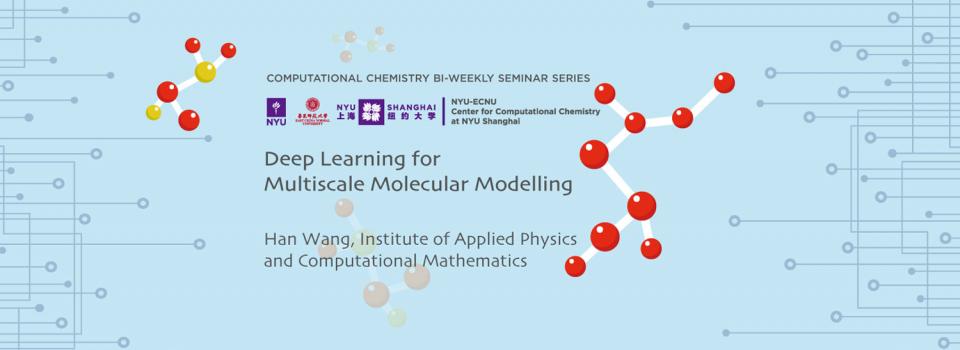
Abstract:
We introduce a series of deep learning based methods for molecular modelling at different scales. We discuss this topic in two aspects: model construction and data generation. In terms of model construction, we introduce the Deep Potential scheme based on a many-body potential and inter-atomic forces generated by a carefully crafted deep neural network trained with ab initio data. We show that the proposed scheme provides an efficient and accurate protocol for a variety of systems, including bulk materials and molecules, and, in particular, for some challenging systems like a high-entropy alloy system. We further show how this scheme is generalized to the context of coarse-graining and free energy computation. In terms of data generation, we present a new active learning approach named Deep Potential Generator (DP-GEN), which is an iterative procedure including exploration, labeling, and training steps. By the example system of Al-Mg alloys, we demonstrate that DP-GEN can generate uniformly accurate potential energy models with a minimum number of labeled data.
Biography:
Han Wang is an Associate Professor at the Institute of Applied Physics and Computational Mathematics. He received his Ph.D. degree in computational mathematics from Peking University in 2011. He worked as a Postdoctoral Researcher at the Free University of Berlin from 2011 to 2014, and then joined the IAPCM. His research interest is multi-scale modelling and simulation in molecular systems, with a special focus on deep learning methods for developing force fields and for enhanced sampling in materials and biological sciences. As the first or the corresponding author, he has published more than 30 research articles in SCI-indexed journals including Physical Review Letters, Physical Review X, and Journal of Chemical Theory and Computation.
Bi-Weekly Seminar Series by the NYU-ECNU Center for Computational Chemistry at NYU Shanghai


